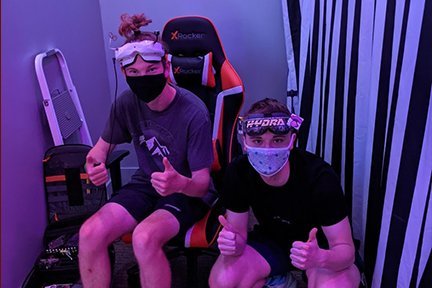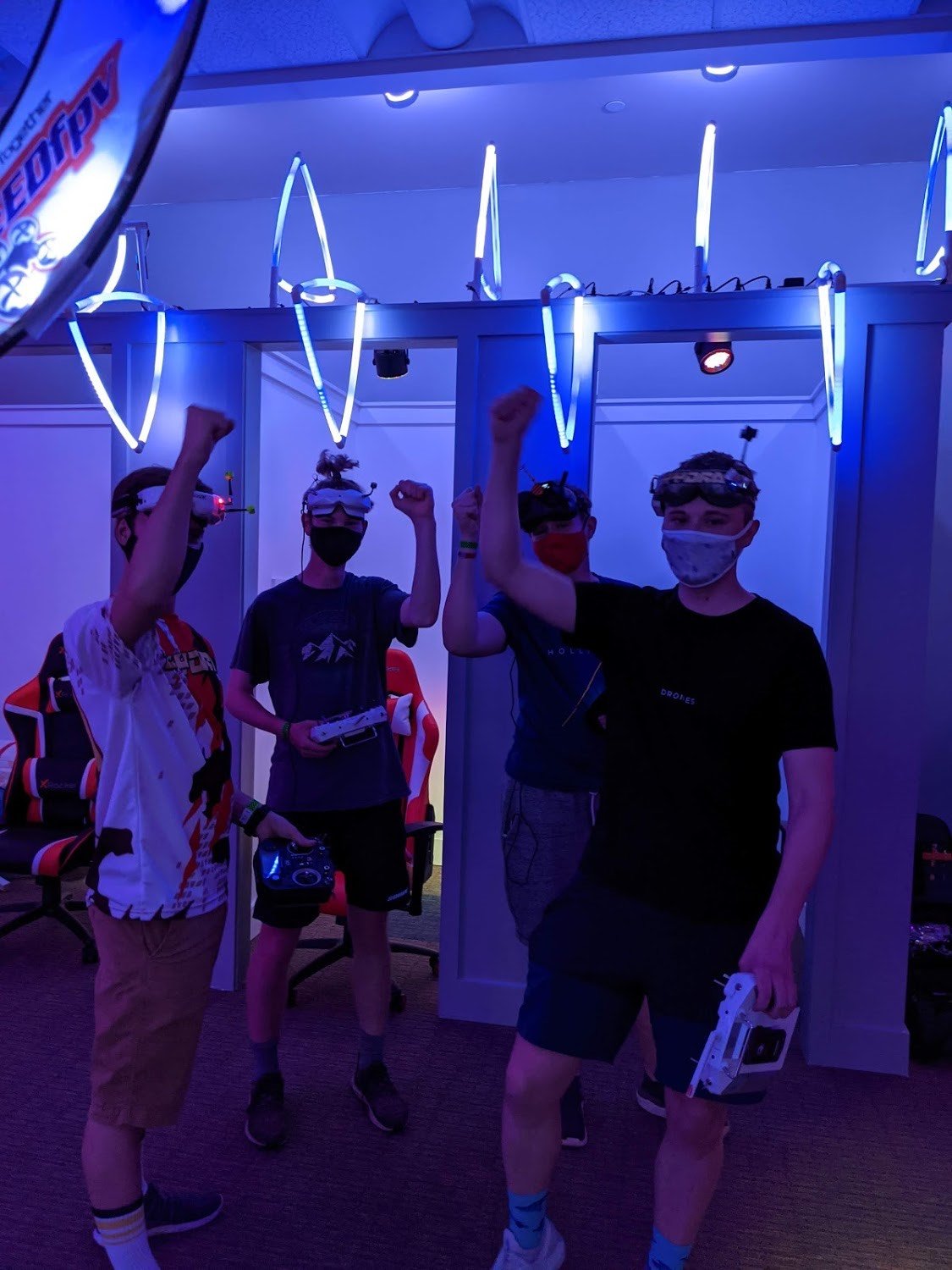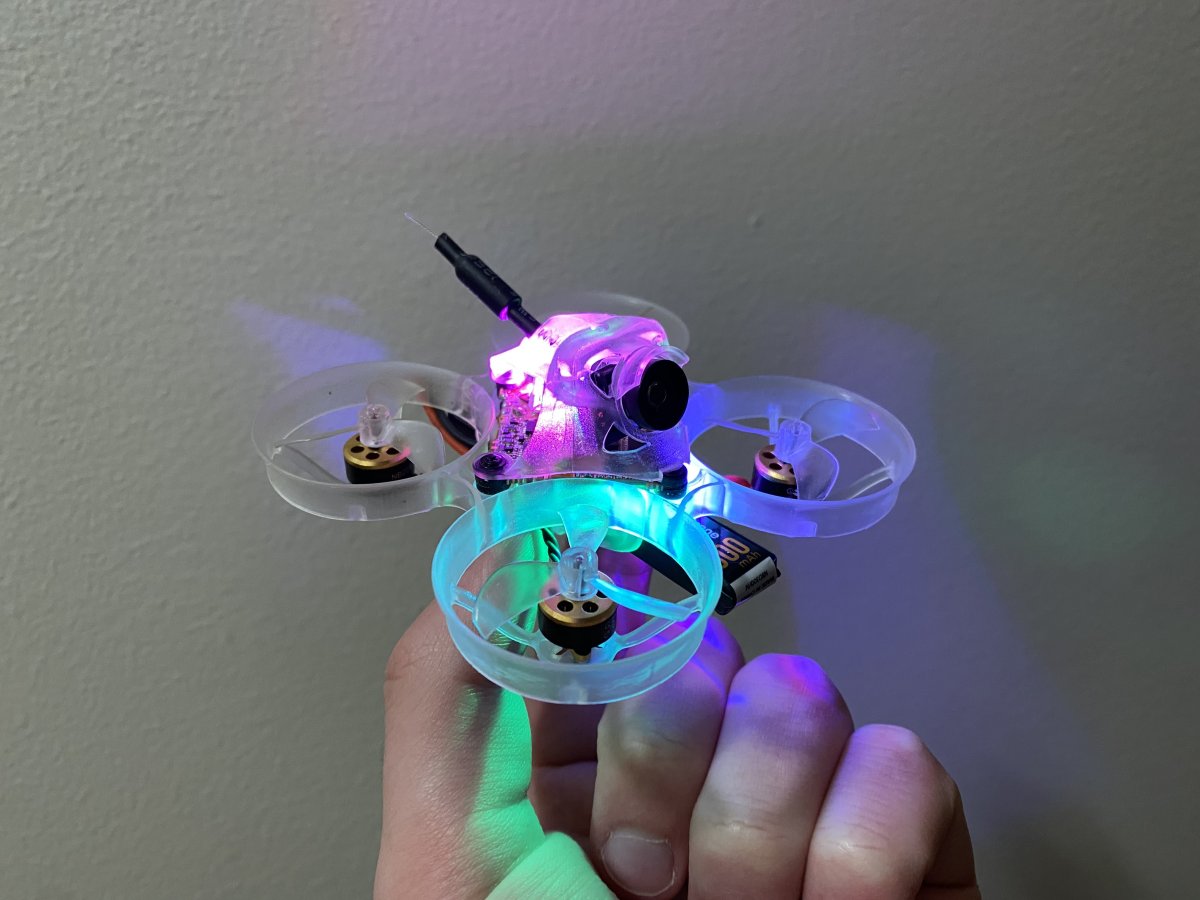High Speed Drone Racing

“I feel the need—the need for speed!” - Tom Cruise
The Team
The Alphadrone Team is all about going fast. Drone racing is the next up-and-coming sport/esport and Alphadrone has fully embraced the challenge of flying drones at high speeds. Drone racing is a unique sport where pilots wear special headsets that connect to the drones, allowing the pilots to fly as if they were inside the drone. Pilots race through technical, 3-dimensional tracks, going through gates, tunnels and weaving around flags. Outdoor racing drones can go as fast as 100mph on the open straights of a track. Indoor drones aren’t quite as fast but still zip around tracks at high speeds.
Alphadrone is the University of Minnesota’s flying first person view (FPV) undergraduate drone racing team. With a core group of 4-5 members, this compact team is flying high and ready to compete.

What to Expect
When racing with Alphadrone, students can expect to practice, practice, practice! Drone racing is a sport that requires precision hand-eye coordination and acute awareness of 3D space, meaning it is essential for pilots fly often to keep these skills sharp. New courses are assembled every week or two to provide opportunities for new pilots.
The team meets once a week for about an hour where they decide on course design and run laps on the track with their drones. As they are relatively new, Alphadrone hopes for the chance to travel to competitions and events around the world in the future.
The team operates under the umbrella of the UMN AIAA Student Chapter who helps manage the team. Members have the chance to socialize and make connections at UMN AIAA’s many events which includes Trivia Night, Root Beer Float Social, or working a booth at the Minnesota State Fair.

Summary
Earlier this year, the team did a clean sweep across competition at the inaugural Minnesota State Collegiate Drone Sports Championship in Bloomington, Minnesota in both the Individual Racing and the Team Racing category.
Students will gain lifelong connections, maintain drones, maneuver drones with expert skill, and be a hand in shaping a new and evolving sport. The team uses a “stock” drone kit which comes pre-assembled but requires maintenances and part replacements. Currently, the drones are relatively small so there are not many opportunities for major modifications to be done without severely impacting the performance of machines. However, as the team and sport are new, future opportunities will more than likely arise in many aspects.
Students interested in joining Alphadrone and racing with the team can contact Spencer Tupy. Keep in mind that the barrier to entry for drone racing has a higher cost comparatively to other student organizations.